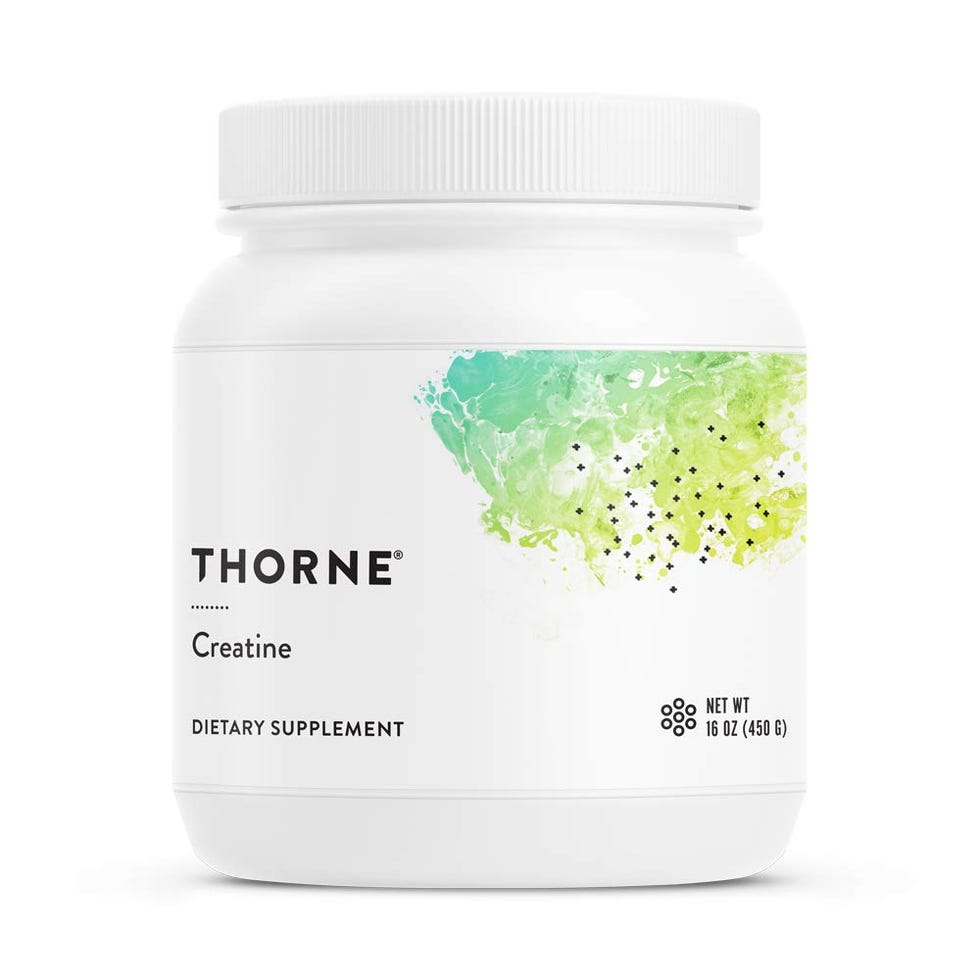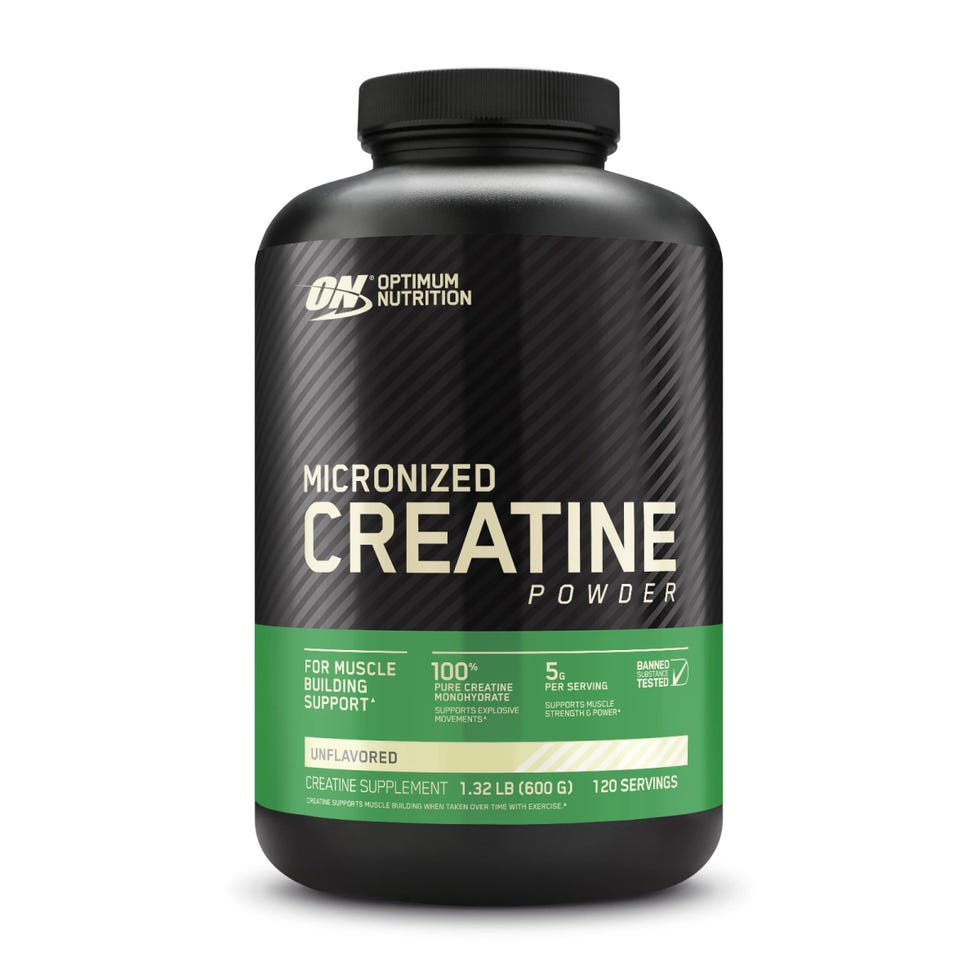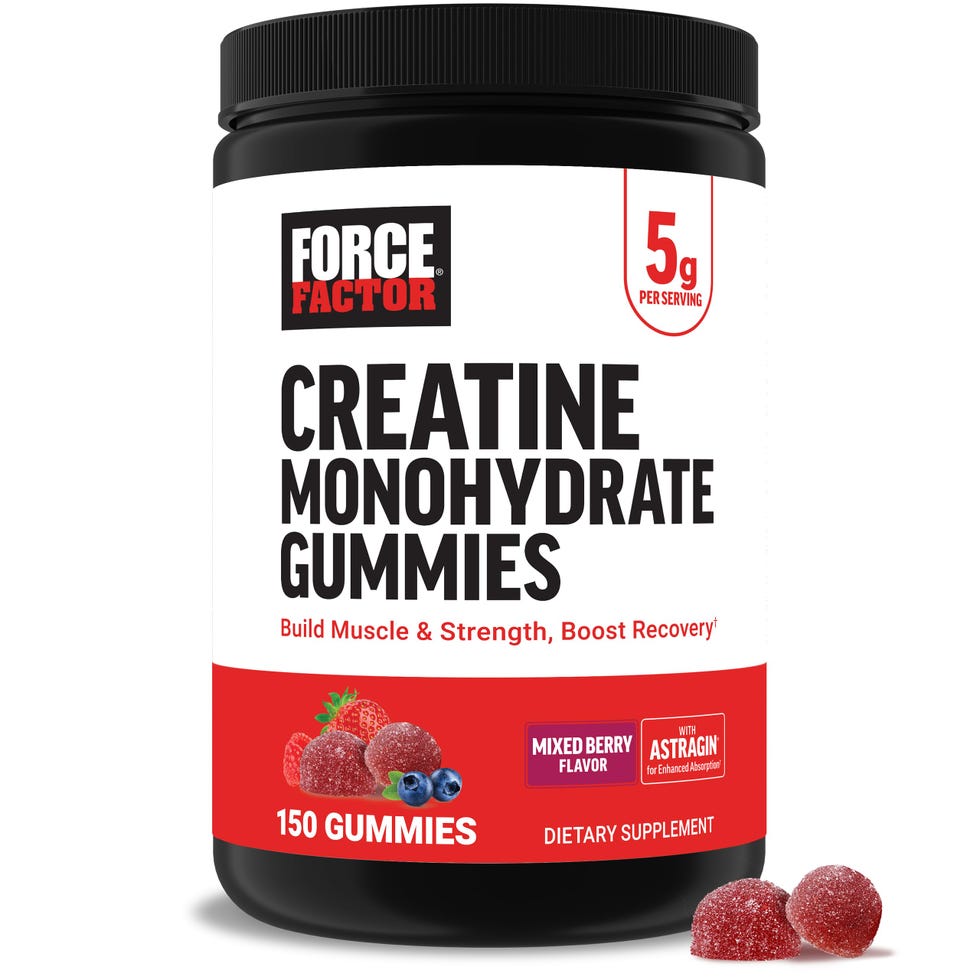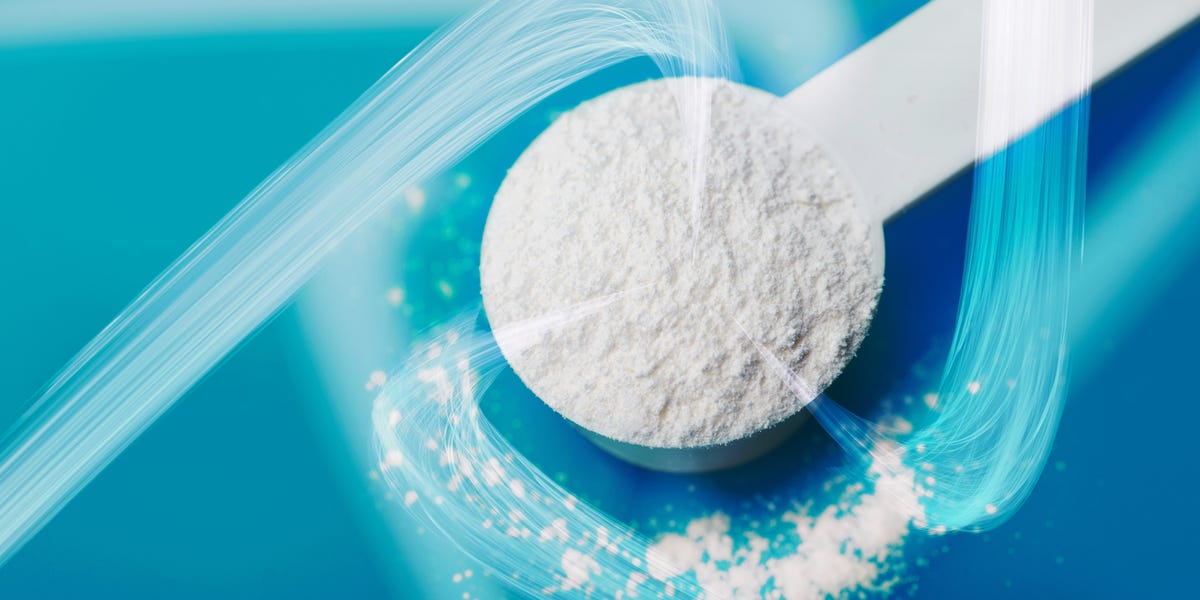Creatine has built up a serious personal brand in the fitness space. It’s known as the go-to supplement for sweat devotees chasing strength, better recovery, and that extra rep. But its talents go way beyond the weight room. The powerhouse compound—it’s naturally stored in your muscles and brain and plays a key role in producing cellular energy—boasts benefits in areas like cognition, hormonal health, and healthy aging.
And supplementation can help nearly everyone, regardless of gender, says Gabrielle Lyon, DO, a functional medicine practitioner and WH advisor. But given that many women eat smaller portions of food, they tend to get less creatine (from red meat, fish, and dairy), adds Dana White, RDN, a sports nutritionist and athletic trainer in Fairfield, Connecticut—all the more reason to supplement.
Meet the experts: Gabrielle Lyon, DO, is a functional medicine practitioner, WH advisor, and the founder of Muscle-Centric Medicine and author of Forever Strong. Dana White, RDN, is a sports nutritionist and athletic trainer in Fairfield, Connecticut. Nicole Lund, RDN, is an NYU Langone clinical nutritionist and certified personal trainer and has her master’s degree in public health from Hunter College.
So, should you be thinking about supplementing creatine even when you don’t have that deadlift on your mind? Here’s what we know right now about what this overachiever can do for overall wellness.
The Benefits of Creatine For Overall WellnessIt might improve your brain health.
Taking a creatine supp can help with tasks involving the frontal cortex, such as cognition, memory, and attention, according to a 2021 review in Nutrients of the use of creatine across a woman’s lifespan. It also helped reduce mental fatigue in healthy adults who were up against a stressful, time-pressured serial calculation test, per separate research in Neuroscience & Biobehavioral Review.
Related Story
And in another exciting review in Amino Acids of multiple studies, a combination of creatine supplementation and physical activity was effective in combating declines in cognitive processing associated with aging—similar to how it can help mitigate the age-related loss of muscle mass. Creatine also might be useful in treating age-related cognitive decline from diseases like Alzheimer’s, as well as neurodegenerative diseases (like Parkinson’s and Huntington’s), per the National Institutes of Health (NIH). Brain wins!
It can potentially help keep your hormones in check.
In each phase of the menstrual cycle, dramatic shifts in hormones like estrogen and progesterone affect the body’s natural creatine levels, sometimes causing them to dip. Supplementing with creatine can help keep the levels more consistent throughout the cycle, says White.
Related Stories
Women who are pregnant, postpartum, or postmenopausal also have altered creatine levels due to hormonal changes. But more research is needed in this specific area of its usage. While it seems as if creatine supplementation might help address these shifts, it’s super important to consult your health care provider before adding it to your routine to ensure it’s safe and appropriate for you, especially if you’re expecting or thinking about getting pregnant.
It may boost your energy.
Creatine boosts the production of ATP—the energy currency your muscles rely on to power movement. This helps supply quick bursts of energy during high-intensity workouts like sprinting or lifting, particularly when it comes to movements involving power, says Nicole Lund, RDN, a clinical nutritionist at NYU Langone and a personal trainer.
But it’s unclear whether this perk directly translates to activities in everyday life that require energy—like carrying groceries while walking across a parking lot, or hoisting up children. Plus, most studies specifically look at how creatine affects energy for exercise.
Related Stories
In theory, though, supplementation would help provide energy for daily activities too, White says. “Creatine is responsible for muscle energy, and you use your muscles when you’re not working out,” she says. Having extra on board is probably a good thing, she theorizes, “so your muscles can tap into it.”
It’s an emerging mental health treatment.
Low creatine stores in the brain may be associated with depressive symptoms, according to a 2025 study in European Neuropsychopharmacology. When one group of individuals took creatine and underwent cognitive behavioral therapy (CBT) while another took a placebo paired with CBT, both groups experienced reduced symptoms of depression overall—but depression scores were “significantly” lower in those who took creatine.
Related Story
This improvement may be because creatine is helpful for boosting brain energy metabolism, modulating neurotransmitter systems that regulate mood, and providing neuroprotection—all of which may help improve mood disorders—especially when combined with antidepressants for two to eight weeks, per 2024 research in Cureus.
Creatine is used in the frontal cortex, the part of the brain associated with mood, so the finding that creatine eased depressive symptoms makes sense, but more research is needed, White says. Supplementing with creatine may bring you back to a healthy range in the brain, which might combat symptoms of depression, Lund adds. However, the findings are preliminary and more data is needed to determine how creatine supplementation can help more people suffering from depression.
How To Take Creatine Safely
Look for creatine monohydrate, the most-studied and “optimal form,” Lund says. Also, scan the label for third-party testing, indicated by an “NSF Certified for Sport” or “Informed Choice” badge, to rule out contaminants.
Women should take three to five grams once daily, White says. And while research is inconclusive about timing, there is some evidence that taking it before or after exercise may be beneficial. You can mix it with water, juice, or another beverage. And taking it in the presence of carbs increases creatine retention, according to Lund.
 Thorne Creatine MonohydrateCredit: Courtesy
Thorne Creatine MonohydrateCredit: Courtesy Optimum Nutrition Micronized Creatine Monohydrate Powder
Optimum Nutrition Micronized Creatine Monohydrate Powder
Now 11% Off
Credit: Courtesy Force Factor Creatine Monohydrate Gummies
Force Factor Creatine Monohydrate Gummies
Now 10% Off
Credit: Courtesy
Addison Aloian is the associate health & fitness editor at Women’s Health, where she writes and edits across the health, weight loss, and fitness verticals. She’s also a certified personal trainer through the National Academy of Sports Medicine (NASM). In her free time, you can find her lifting weights at the gym, running on the West Side Highway in New York City—she recently completed her first half-marathon—and watching (and critiquing!) the latest movies that have garnered Oscars buzz. In addition to Women’s Health, her work has also appeared in Allure, StyleCaster, L’Officiel USA, V Magazine, VMAN, and more.
Olivia Luppino is an editorial assistant at Women’s Health. She spends most of her time interviewing expert sources about the latest fitness trends, nutrition tips, and practical advice for living a healthier life. Olivia previously wrote for New York Magazine’s The Cut, PS (formerly POPSUGAR), and Salon, where she also did on-camera interviews with celebrity guests. She’s currently training for the New York City marathon.

